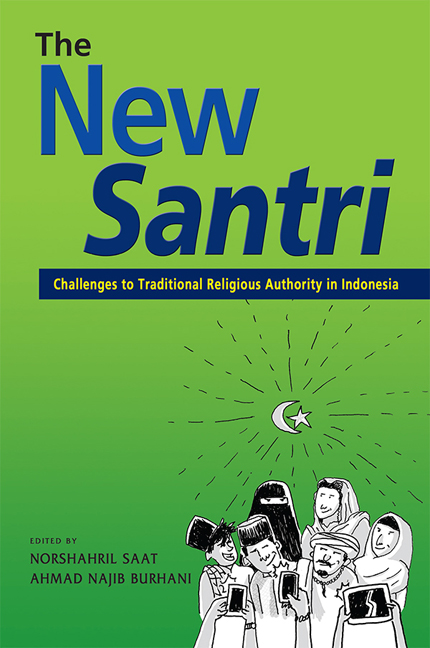3 - “Being Authoritative But No Authority?” Muslim Religious Intellectuals in Shaping Indonesian Islam Discourse
Published online by Cambridge University Press: 24 November 2020
Summary
When a society—or significant segments of a society—lacks the sort of atmosphere that values thought, that cherishes reflection, it becomes very difficult for a reform group to play its role as articulator and disseminator of ideas.
Chandra MuzaffarThe rise of Indonesian religious intellectuals in the post-war period is an interesting sociological phenomenon. For the first time in history, religious intellectuals, be those trained abroad or locally, or those from mainstream education or Islamic ones, are providing leadership in the Muslim religious, cultural and intellectual discourse. Earlier, with the rise of reformist circles at the turn of the twentieth century, the traditional ulama (religious elites) could no longer claim to be the sole guardian and interpreter of Islam. Their authority was challenged by reformist groups, which saw religious traditionalism as a hindrance to the progress of the Muslims. In any intellectual history, inevitably the authority of one group is continuously challenged by another, be it subtle or overt. Indonesian intellectual history, especially in the domain of religious leadership, demonstrates a similar trait. The expansion of the middle class and the increase religiosity of Indonesian society lead to the expansion of Islamic education, including those at the higher level. It is within this socio cultural milieu that religious intellectuals emerged, which is separate from the traditional ulama hierarchy who are still the dominant elite grouping in Indonesian society.
The Indonesian intellectual discourse, like in other Third World countries, is still developing in breadth and depth. The challenge from the religious rightists—including neo-liberal market hegemony—is becoming more intensified and complex. Today there is an ongoing struggle between the various strands of Islamic orientation in Indonesia. This chapter attempts to discuss and evaluate the presence and contributions of Indonesian Muslim religious intellectuals whose position can be made distinct from the ulama/kyai, ustaz, tuan guru and da’i. To what extent can these critical voices make further inroads in challenging, or at least mitigating, and responding to, the rightist's assertions? Would intellectual responses suffice? Why is the presence of such ideas important? Underestimating them would be allowing the absence of critical ideas in the public sphere. Hence the task becomes imperative to nurture and encourage active engagement of ideas, at least in projecting itself as equally authoritative, in the midst of competing ideas.
- Type
- Chapter
- Information
- The New SantriChallenges to Traditional Religious Authority in Indonesia, pp. 28 - 47Publisher: ISEAS–Yusof Ishak InstitutePrint publication year: 2020



